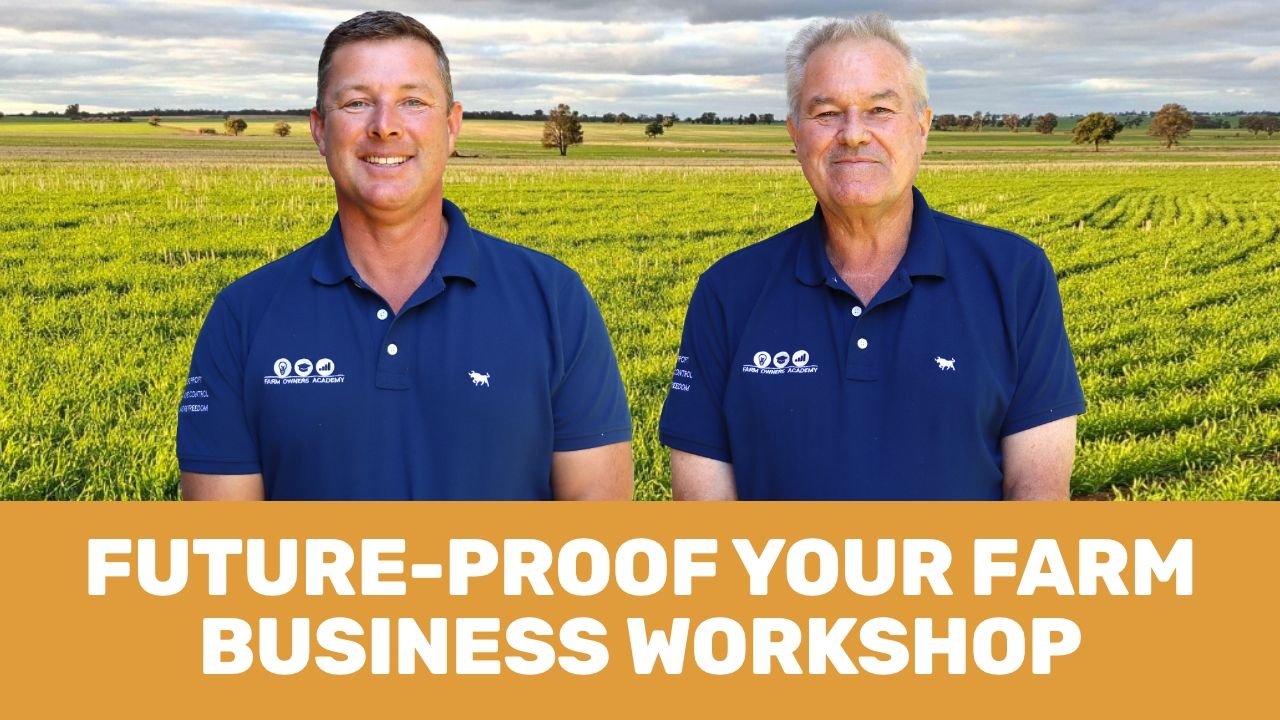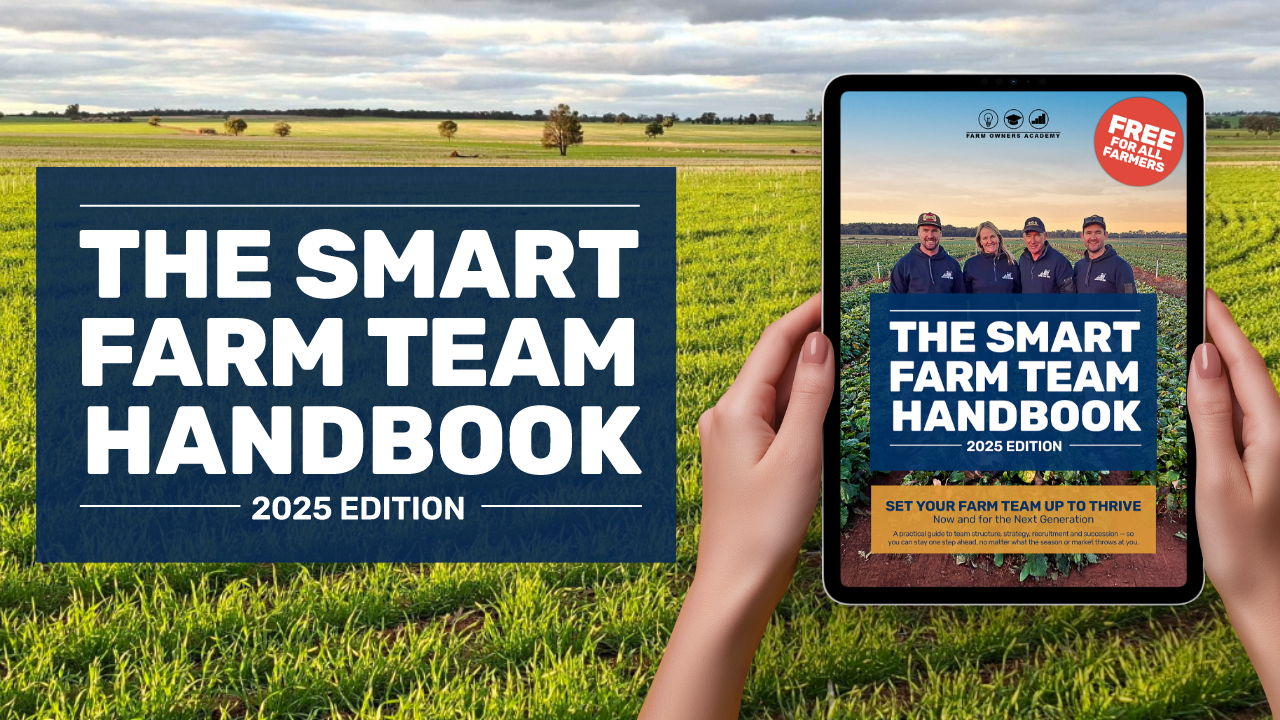Succession Planning Insights
Aug 08, 2024
Succession planning is a vital aspect of any family farming business. In this week’s blog, I am revisiting Profitable Farmer Episode 101, "Another Look into Successful Succession." If you're in a family farming business, this is a must-listen episode that offers invaluable insights.
Jeremy speaks in depth with Isobel Knight – owner and director of the leading family farm succession planning business, Proagtive. Isobel's journey with succession began with her husband's family, leading her to create a professional, bespoke succession planning service that would make a difference. Eighteen years later, Isobel and her team help farming families across Australia to stay together and thrive in agriculture.
There is so much in this episode that it was challenging to choose the key points, but I’ve given it my best shot:
- Business Management. Succession is about business continuity, or an orderly exit, and should be part of good business management. It requires planning, time and project management. Businesses need to consider it as important as the operational aspects of what they do.
- Three Plans. Family businesses need to proactively make a succession plan that runs parallel to a business plan and an estate plan. It’s no longer good enough just to have a will. The timing of succession is important because time for the delivery of business outcomes is needed when the business is the vehicle to achieve the wishes of the people.
- Communication. There are many reasons the succession conversation is avoided. One of them is that we’re not usually trained in communicating effectively when it comes to personal overlaying business. We need to learn how to do this and this is what Proagtive facilitators train for because the skill is underestimated.
- Education. Proagtive’s succession process gives structure and security to their team and clients. Part of that process is making sure all family members are ready to make decisions, which can take time and education before a family gathers around the table.
- Respect. Respect is critically important for all family members, as well as the facilitator. All family members affected by the decisions made should be involved in the process but priority is given to the incumbent generation as they are the key stakeholders and decision makers.
- Opportunity. Isobel says that often people are stuck on the here and now of their balance sheet, whereas through the succession process, their team encourage focusing on the opportunity. “We are fundamentally fortunate people because we do actually have some wealth and we do have the opportunity to create a future (most of us).” This is an important perspective to maintain.
- Doing nothing is making a choice. Succession is not easy but it’s very important. Baggage needs to be addressed early or it will get in the way the whole way through. It’s the responsibility of human beings who value their relationships to work on themselves, which Isobel says, “is the hardest work a human being will ever do.”
- Overcoming Fear. Succession planning brings up many fears, including the fear of damaging relationships. For the younger generation succession represents excitement, whereas for the older generation, it represents letting go, facing their fears and enormous vulnerability. Therefore, we must be very gentle and very kind to one another throughout the process.
- Creative process. Succession is a creative problem-solving process with a view to creating opportunities. The ideal outcome is families who love each other and continue to have their Christmas’s together.
This conversation underscores the complexity of succession planning and the importance of professional guidance. As Isobel Knight states, "Sometimes the patch of dirt is less important than the people."
Much love,
Benita Bensch
Accountability Coach








